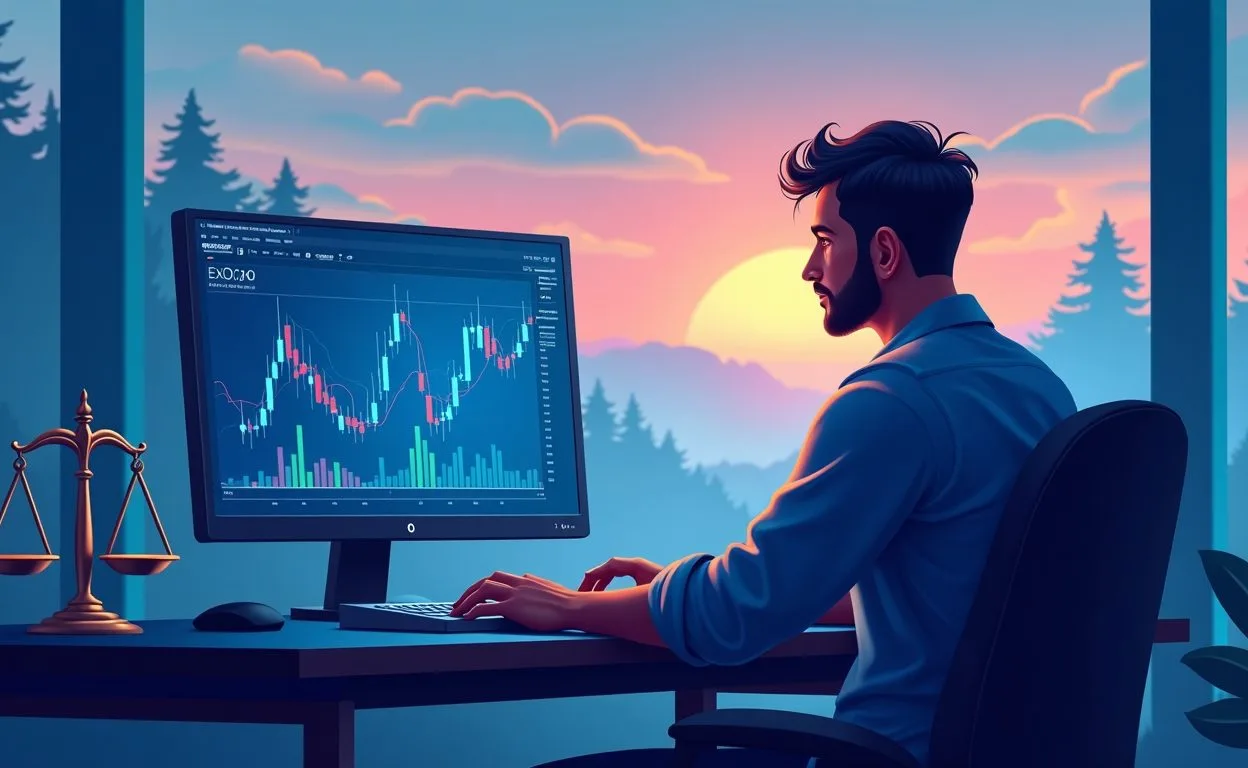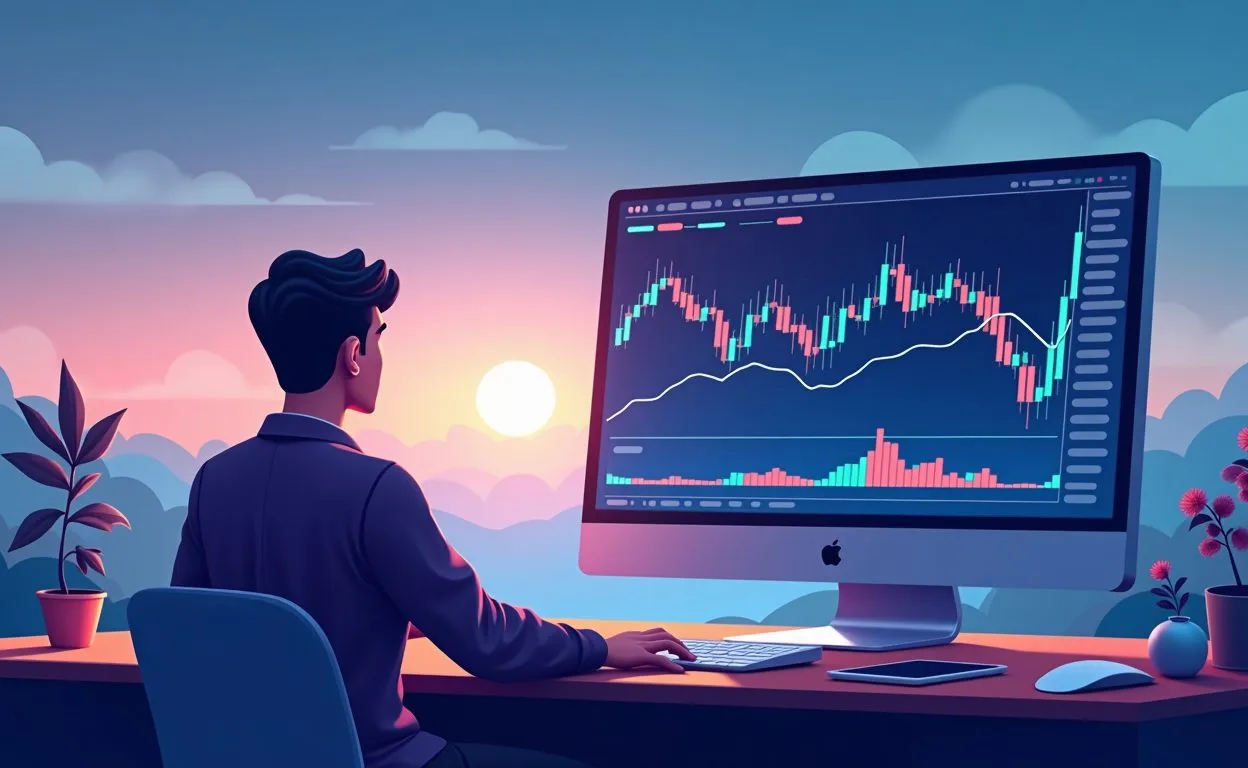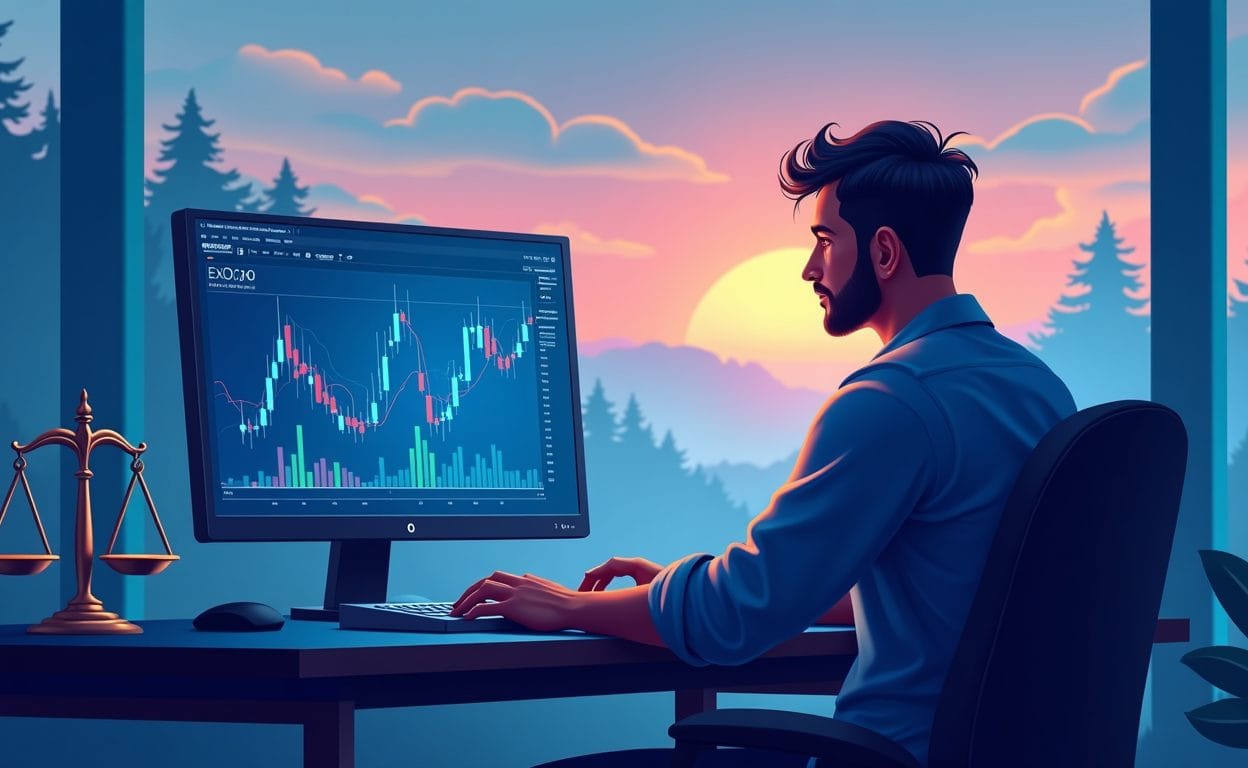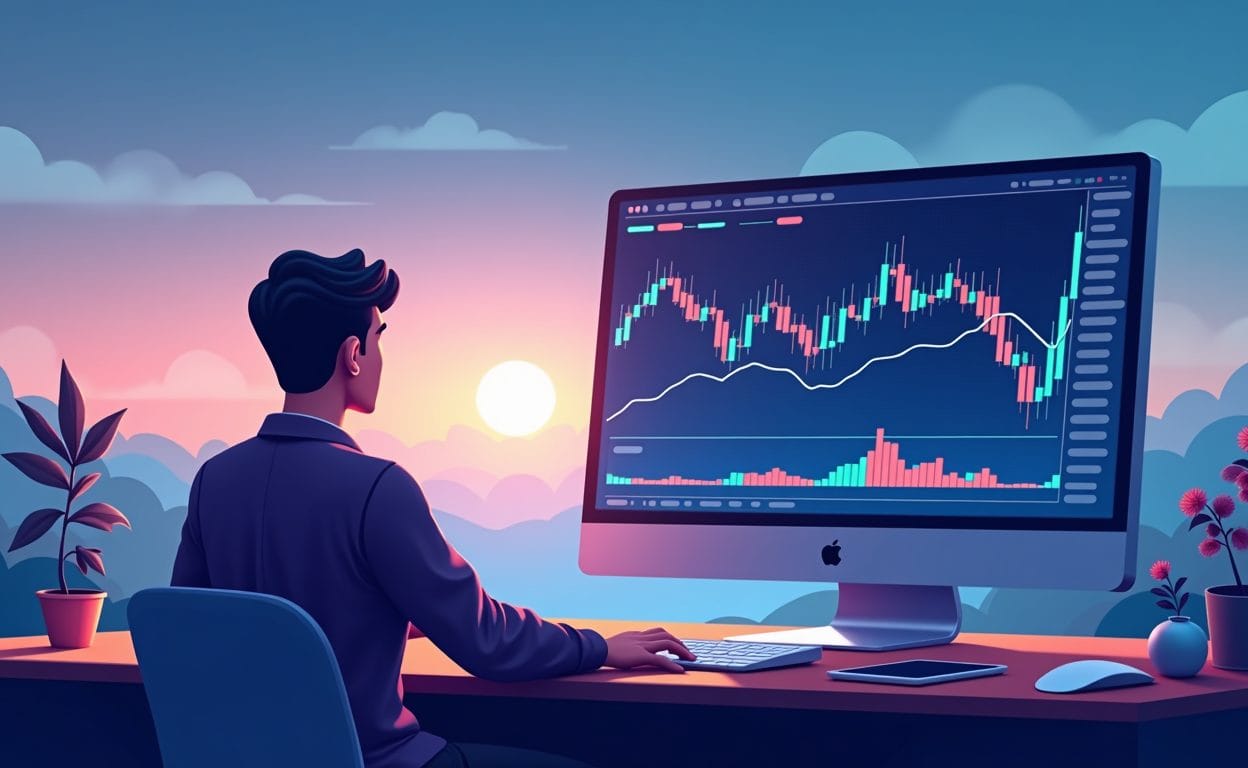Overcoming FOMO in Trading: From Fear of Missing Out to Prosperity
Understanding the Concept of FOMO in Trading
In the fast-paced world of trade, where market trends shift in real-time, the fear of missing out (FOMO) can be a significant hurdle. FOMO in trading is more than just a buzzword; it's a psychological phenomenon that can lead to impulsive trades and emotional decisions. Every trader, whether a novice or seasoned, can feel the impulse to jump into trades without a solid trading plan. But what if we could transition from FOMO to JOMO (the joy of missing out)?

Consider a trading environment where individuals embrace JOMO, the joy of missing out, by avoiding trades that don't align with their strategic goals. By focusing on a comprehensive trading plan and effective risk management, traders can mitigate the impulse to make hasty decisions that could jeopardize their investment portfolio. This shift not only preserves their financial resources but also enhances their trading experience by reducing stress and the emotional component of decision-making.
FOMO often influences decision-making, leading traders to deviate from their original trading strategy in pursuit of fleeting market opportunities. However, true success in trading involves more than just chasing the next big stock; it requires a disciplined approach that prioritizes long-term stability over short-term gains. Through mindfulness and self-awareness, traders can avoid the pitfalls of impulsive trades driven by FOMO and find security and satisfaction in their well-considered choices.
The Impact of FOMO on Trading Decisions
FOMO significantly influences how many traders make their trading decisions, often leading to poor logical thinking. This pervasive fear of missing out on the next big stock opportunity can cause traders to stray from their well-thought-out trading strategy. The outcome? Impulsive trades that frequently lead to financial losses.
It's crucial to carefully consider whether trading based on emotions is worth the potential risk. Impulsive decisions driven by FOMO can quickly erode the value of your investment portfolio. Therefore, it’s essential to embrace a more mindful approach to trading, with self-awareness and mindfulness at its core. By maintaining focus on these aspects, traders can make more rational decisions, mitigating the impact of FOMO and protecting their financial interests.

Understanding that FOMO often clouds judgment, traders need to practice patience and discipline. By reflecting on each decision, they can better align their actions with long-term goals rather than immediate gratification. This shift not only safeguards their financial security but also enhances their overall trading experience, promoting a healthier relationship with market dynamics.
Developing a Solid Trading Plan and Strategy for Overcoming Fomo: Invest in a Journal
A solid trading plan is your roadmap to success, offering guidance through the market's complexities. Investing involves not just picking the right stocks but also adeptly managing risk through effective risk management and carefully considered position sizes. A comprehensive trading strategy incorporates technical analysis, rigorous backtesting setups, and a strategically placed stop-loss to minimize potential losses and secure your financial future.

To effectively avoid FOMO, it's crucial to maintain a detailed trading journal. This practice allows you to track your trades meticulously and reflect thoughtfully on your trading experience. Such documentation is invaluable in understanding the impulses driving each trade, helping you to identify patterns and mitigate these tendencies in the future. By cultivating this awareness, traders can make more informed decisions, enhancing both their strategy and success in the market.
Embracing the Joy in the Fear of Missing Out (JOMO)
Transitioning from FOMO to JOMO involves embracing the concept of missing out on volatile trades that do not align with your established risk tolerance. Rather than fearing potential losses, concentrate on the security and stability of your investment portfolio.
The true joy of missing out is found in the assurance that you have not succumbed to impulsive decisions, thereby safeguarding your assets and promoting long-term financial health. By making deliberate, strategic choices, you can enhance your trading experience while maintaining control and confidence in your decisions.
To find out about some of the tools I use to make strategic decisions, press the button below :
Building Resilience to Avoid FOMO
To effectively overcome FOMO in trading, it's essential to cultivate mindfulness, visualization and self-awareness. Refer back to an earlier article on visualization here. Using a mobile app can be a practical way to track market trends without causing panic, allowing you to carefully evaluate each trade. Logical thinking, paired with a well-thought-out trading approach, is vital to ensure every trade aligns with your long-term objectives.
Overcoming FOMO doesn't mean avoiding trades entirely; it means making well-informed decisions. When you enter a trade, it's important to take profits when necessary and establish a stop-loss to manage risk. As you learn to embrace the joy of missing out on trades that don't align with your strategy, your trading experience will become richer and more rewarding.
Fomo Trading Conclusion
In the dynamic world of trading, the fear of missing out can often lead to impulsive decisions that may cost you dearly. By committing to developing a solid trading plan, practicing mindfulness, and focusing on logical decision-making, you can successfully transform FOMO into JOMO. This transition allows you to enjoy the joy of missing out on trades that don't align with your strategy.
Carefully consider each trade, focusing on how it aligns with your long-term goals. Manage your risk effectively and take comfort in the security of a well-managed investment portfolio. Remember, the market is a constant presence, and with the right approach, you can navigate it successfully without falling prey to FOMO. By embracing a disciplined strategy, you can enhance your trading experience, ensuring that each decision contributes to your financial well-being and peace of mind.
Please Share this article and Try our Quiz Below!
Are You A FOMO Trader? The Fear Of Missing Out – Tradeciety …



I provided a comment on your site. That’s some really good information and explanation of how money can affect how well you’re doing.
I really don’t know how to give a constructive comment here as I have so little knowledge. Im going to follow you and learn more about it.
Wish I had the smarts to understand how the market works.
Thank you. I read a lot of news articles and work on the psychological aspect. Most of the professionals will use some form of fundamental analysis or volume analysis along with the technicals to gain an edge. Trading requires a higher EQ not necessarily IQ.
I have always thought about learning to trade but figured I’d lose all my money. I really like how this article goes into keeping the right mindset.
I may now look into trading again.
Most people will lose in the long run because it’s just as much a mental game as it is skill based. Thanks for the comment. For a good starter course in technicals read this article: https://andiamolireforex.com/what-are-the-best-online-trading-courses-part-1/
Interesting article.
Having a system based on your goals, time frame to achieve them and tolerance for risk are some of the main factors that I think are key to having a great system.
Keeping your focus and sticking to your system can lead to reaching your financial goals. I may look more into your system/program. It sounds interesting.
Thanks.
At present, I’m just passing on valuable information to others as far as what has helped me. I think what is most important is keeping the focus on money management which includes having a good reason for entering a trade. This reason will be a result of spending time researching the news surrounding a currency. You’re not managing you’re money well if you aren’t spending the time researching. With solid research comes a stronger conviction and organic trading ideas. This research fills the void that fear takes over when you don’t spend the time.